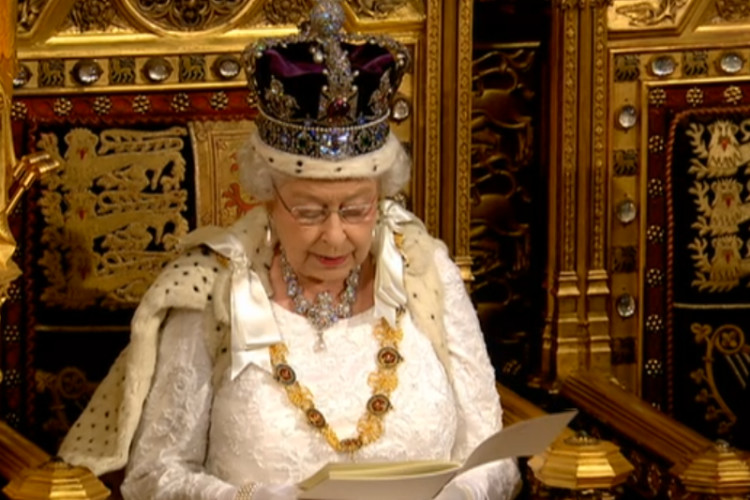The legislation also covers shale gas exploitation and zero-carbon building standards for homes.
The last session of parliament before the next general election, fixed for May 2015, began today with the queen reading out the government’s plans for new legislation, among the 15 bills to be brought forward are reforms to pension laws, the introduction of tax-free childcare subsidy, anti-slavery legislation and new powers for the state to recoup the proceeds of crime.
Of central interest to the construction industry is the infrastructure bill, covering everything from highways to garden cities to fracking.
If enacted, the bill will turn the Highways Agency into a government-owned company, like Network Rail and remove the power of government to chop and change its funding. It would create units within Passenger Focus and the Office of Rail Regulation to represent the interests of road users and to monitor the company’s performance.
A separate section of the bill would simplify the process for making changes to development consent orders (DCO) by speeding up non-material changes to a DCO, and allowing simplified processes for material changes. An examining authority to be appointed immediately after an application has been accepted and for the panel to comprise two inspectors, speeding up the process and saving money, the government hopes.
The bill would allow certain types of planning conditions to be discharged upon application if a local planning authority has not notified the developer of their decision within a prescribed time period.
Further planning reform within this bill would permit land to be transferred directly from arms-length bodies to the Homes & Communities Agency, in a bid to reduce bureaucracy and manage land more effectively.

The legislation will also open up access to shale and geothermal sites, subject to the outcome of government consultation now taking place on this topic.
Finally, the bill includes provision for new homes to be built to a zero carbon standard.
The government is committed to implementing a zero carbon standard for new homes from 2016 but recognises that it is not always technically feasible or cost effective for house builders to mitigate all emissions on site.
The government would set a minimum energy performance standard through the building regulations. The remainder of the zero carbon target can be met through cost effective off-site carbon abatement measures – known as ‘allowable solutions’. These provide an optional means for house builders to meet the zero carbon homes standard, as an alternative to increased on-site energy efficiency measures or renewable energy (such as solar panels). Small sites, which are most commonly developed by small scale house builders, will be exempt. The definition of a small site will be consulted on shortly, and set out in regulation.
The Zero Carbon Home standard will be set at Level 5 of the Code for Sustainable Homes, but the legislation will allow developers to build to Level 4 as long as they offset through the allowable solutions scheme to achieve Code 5.
Energy efficiency requirements for homes are set in the Building Regulations 2010 and are made under powers in the Building Act 1984. But there are insufficient powers in the Building Act to introduce off-site allowable solutions, so the government will now bring forward enabling powers for this.
Got a story? Email news@theconstructionindex.co.uk
.png)


